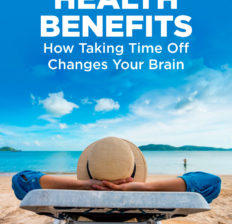This Dr. Axe content is medically reviewed or fact checked to ensure factually accurate information.
With strict editorial sourcing guidelines, we only link to academic research institutions, reputable media sites and, when research is available, medically peer-reviewed studies. Note that the numbers in parentheses (1, 2, etc.) are clickable links to these studies.
The information in our articles is NOT intended to replace a one-on-one relationship with a qualified health care professional and is not intended as medical advice.
This article is based on scientific evidence, written by experts and fact checked by our trained editorial staff. Note that the numbers in parentheses (1, 2, etc.) are clickable links to medically peer-reviewed studies.
Our team includes licensed nutritionists and dietitians, certified health education specialists, as well as certified strength and conditioning specialists, personal trainers and corrective exercise specialists. Our team aims to be not only thorough with its research, but also objective and unbiased.
The information in our articles is NOT intended to replace a one-on-one relationship with a qualified health care professional and is not intended as medical advice.
Vacation Health Benefits: How Taking Time Off Changes Your Brain
June 28, 2025

We can probably all agree that leaving the cubicle and heading out on a holiday or taking a midday break to meditate and de-clutter our minds feels good. But did you know that these disruptions in our regular schedules actually change our minds and bodies for the better, on a biological level? And that’s just one of the vacation health benefits.
A study published in Translational Psychiatry found that both taking a vacation and meditating actually make an impact on our molecular networks.
The study followed 94 healthy women between the ages of 30 to 60 years old. They all stayed at the same resort, with half simply on vacation and the other half following a meditation training program.
To better understand the “meditation effect,” the scientists behind the study also followed a group of 30 experienced meditators staying at the retreat the same week.
The research team looked at changes in 20,000 genes to figure out which genes changed during and after the resort trip. The results showed that spending a week at the resort significantly changed the molecular network patterns of participants in all the groups: the vacationers, the beginner meditators and the experienced meditators.
Perhaps unsurprisingly, the most notable gene activity was in those areas relating to stress response and immune function. A month after the experience was over, those newbie meditators were riding the relaxation wave with fewer symptoms of depression alongside visible stress relief compared to the non-meditating vacationers.
Essentially, while it seems logical that taking a vacation or engaging in heavy meditation would reduce stress, this is one of the first times that researchers have been able to pinpoint large changes in the body’s genes in a short amount of time.
What happens in your body when you go on vacation or meditate? Keep reading to learn more of the benefits of taking a vacation.
Vacation health benefits
Let’s start with the elephant in the room: Most of us don’t take enough time off. In fact, more than half (55 percent) of Americans don’t use all of their paid time off (PTO), and when they do take off, 52 percent say they have worked during time they took off.
While it might seem that you’re just getting ahead and proving your worth to your boss, not taking full advantage of those days off means you’re failing to receive the benefits of vacation time.
For starters, just planning a vacation can actually boost happiness levels. Whether it’s from the anticipation of the unknown or the excitement of planning time away, getting ready for a holiday can increase happiness, with one study finding that participants saw their mood levels improve about eight weeks before going away.
But the real magic occurs when you vacation. Being in a new environment, particularly abroad, affects how our neural pathways respond to things (also known as neuroplasticity) and can make us more creative.
When we’re in our normal, day-to-day lives, our brains can go on autopilot: They know how things work and where places are. When our brains are exposed to new sounds, tastes and cultures, different synapses fire off in our brains, revitalizing our minds and encouraging us to try new things, if only because we have to.
Maybe you’re not too keen on getting in touch with your creative side. Going on vacation will help you physically, too.
The Framingham Heart Study, which began in 1948 and is still going strong, found that women who took vacations just once every six years were nearly eight times more likely to have a heart attack than those who took one at least every two years.
A University of Massachusetts study discovered that among middle-aged men at high risk for coronary heart disease, the frequency of annual vacations was associated with a reduced risk of dying. Men who went on vacation regularly were 21 percent less likely to die of any cause and 32 percent less likely to die of heart disease.
Who needs medicine when you can lie on the beach?
Maybe you don’t have the luxury of jet-setting off to an exotic locale or taking weeks off at a time. That doesn’t mean you should skip taking time off.
Turning off your email and “unplugging” can ease you into a vacation state of mind, whether you’re enjoying a “staycation” or hitting the road with your family.
Being willing to try new things, whether you’re in an unfamiliar location or not, can keep your brain active and on its toes. Try local food and an adventure you might not normally indulge in.
Staying local? Check out a restaurant with a cuisine you might be unfamiliar with, or visit a nearby town you haven’t explored yet.
How meditating changes your body
Meditation has been around for thousands of years, and the positive effects from people who practice “mind exercising” have been touted for nearly as long. Now science can back up that the benefits you feel after taking a few minutes of zen are real and actually transform your cells.
For instance, a 2014 study published in the journal Cancer found that cancer survivors who participated in stress-reducing techniques, including meditation and yoga, physically changed their cells.
At the end of the three-month study, the two groups who meditated had longer telomere lengths than the control group, which only participated in one six-hour stress-reduction workshop. Telomeres are bits of DNA at the end of our chromosomes. Shortened telomeres are associated with aging, diseases like cancer as well as death.
As our telomeres age and can no longer shorten, the cells they’re attached to begin dying as well. This is how our bodies age.
When the study was over, the telomeres of those who meditated were the same length as when the study began. The control group’s telomeres were shorter, indicating that something about the stress-reducing activities was able to keep the telomeres intact in those three months.
“We already know that psychosocial interventions like mindfulness meditation will help you feel better mentally, but now for the first time we have evidence that they can also influence key aspects of your biology,” said Linda E. Carlson, the study’s lead investigator.
Meditation has also been proven to help reduce anxiety, and it all comes back to the “Me Center,” or the medial prefrontal cortex. This is the area of our brains that processes information about ourselves and the world around us (hence the “me”).
Usually, the neural pathways from the sensation and fear areas of the brain to the Me Center are quite strong, triggering a reaction in the Me Center.
Meditation actually weakens this connection, so the instinct to react to an upsetting situation weakens. At the same time, the Me Center link to the brain’s lateral prefrontal cortex, or Assessment Center, strengthens. Instead of freaking out about a situation, our minds are able to assess what’s happening in a more rational manner.
So, for example, if you email your boss a question and it takes her a few hours to respond, instead of worrying that your job is in jeopardy, you’re able to ascertain that she’s probably in a long meeting and unreachable at the moment.
Regularly meditating might actually make you a more compassionate person as well. A 2008 study found that when meditators heard sounds of people suffering, their temporal parietal junctures, the area of the brain linked with empathy, had a stronger response than in the brains of those who don’t regularly meditate.
You don’t need to spend hours or money to start meditating. You can get started with free or inexpensive smartphone apps like “Headspace” or “Buddhify.”
Even just mindfully taking a few deep breaths in and out can help ease our minds. (Also, check out our “guide” to guided meditation.)
It’s fantastic to see that science is getting closer to understanding just how our minds affect our bodies and health. But let’s be honest, most of us don’t need a scientist to tell us that going on vacation or meditating will help us feel better.









